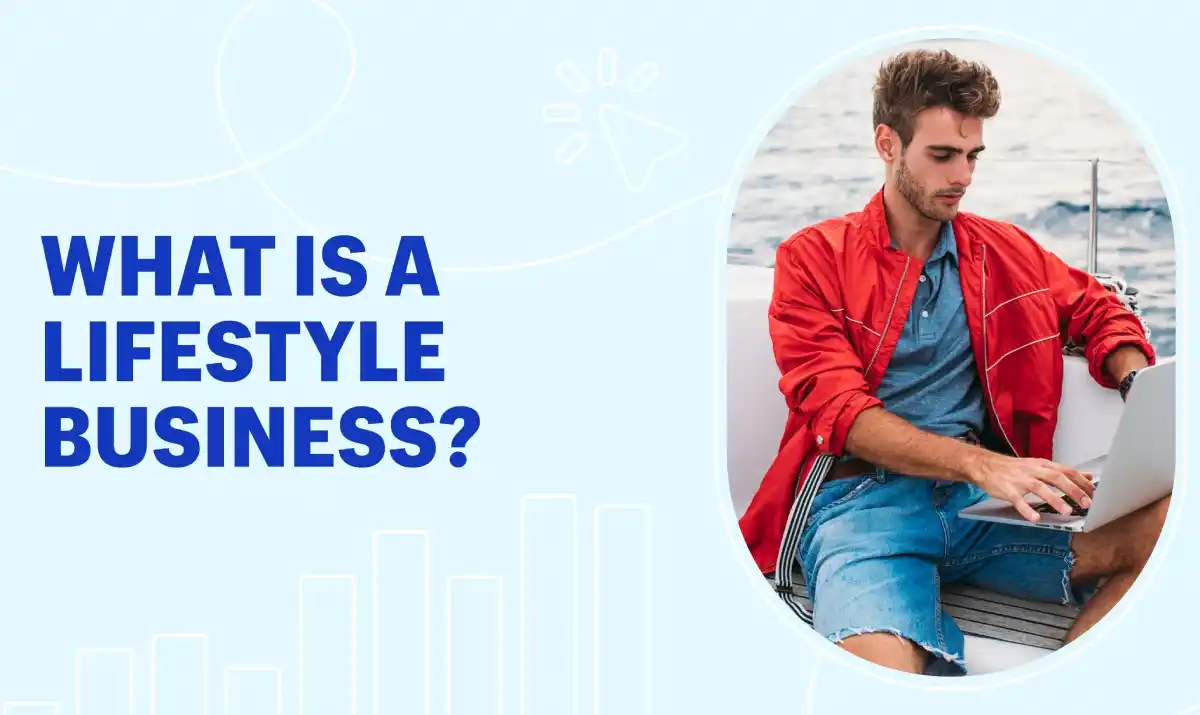Friends are significant in our existence In The Help by Kathryn Stockett. They give a companion, someone to lean on and probably experiences to look forward to. Nevertheless, there is one type of friendship for which people receive no benefit – toxic friendship. Sometimes we are involved with people who are bad for our mental health, who siphon energy from us, or who make us doubt ourselves. These are friendships referred to as toxic friendships and may greatly impact on one’s mental as well as emotional health.
Separating from a toxic friend is not easy, but it is the right thing to do when working to improve one’s life. In this article we will discuss more on understanding toxic friendships, why it’s important to, and the practical ways on how to let go and move on. With awareness of the toxic relationships, you’ll avoid falling victim and be able to create healthier relationships for the future.
What Is a Toxic Friendship?
Toxic friendships are friendships in which at least one and in some cases both of the friends are toxic. Healthy friendships on the other hand involve the involved parties respecting each other, trusting and supporting each other but toxic friendships include those that are one way, envious or stressful.
This means that in toxic friendships the communication is rarely positive. Instead of making you feel supported, loved and valued, you feel used, judged or even belittled. Such relationships can be passive or acute, however, the common thing is that they are damaging to one’s health.
How to Identify Toxic Friendships
Identifying a toxic friendship can be difficult, especially when there are strong emotional bonds or a long history with the person. Here are some common signs to look out for:
1. Lack of Reciprocity
In a toxic friendship you may end up being the one giving most of the time with the other person receiving most of the time. As a result the relationship always appears to be skewed in one direction and can make one feel unappreciated and emotionally hungover.
2. Manipulation
Toxic friends like to manipulate you through shaming , bullying or making you fell responsible in case you don’t do as they want. For example, they can make you feel that you are wrong to go out and spend time with friends or have my own projects.
3. Constant Criticism
While others will encourage you, motivate you and even make fun of your accomplishments in a positive way, a toxic friend will undermine your efforts and even make fun of you. Some of their remarks seem more like criticisms than useful suggestions.
4. Jealousy and Competition
A toxic friend will always be envious and see your accomplishments as a stab at their own uninformed celebration. This can lead too much conflicting and rivalry than necessary.
5. Emotional Drainage
Striking off a toxic friend results in feelings of irritation, stress or, negativity rather than rejuvenation and upliftment.
6. Boundary Violations
They may easily cross your boundaries concerned with privacy, invasive personal visits orわWell, all the time they may disrespect your opinion and your feeling of what is acceptable or not.
The Emotional Impact of Toxic Friendships
Remaining in a toxic friendship can have significant emotional consequences. These may include:
- Increased Stress and Anxiety: This will make the atmosphere around you disturbing and unhealthily to your mental status.
- Low Self-Esteem: If you always get criticism or manipulation then that would make you doubt your self-esteem.
- Isolation: A toxic friend may want to seclude you from other friends so that he or she can control you fully.
- Difficulty Trusting Others: This manner, of aggression can cause a fear of being open in future relationships if the partner shows toxic behaviors.
Understanding these effects emphasizes why moving on is essential.
Why Moving On Is Necessary
Ending a toxic friendship means not only leaving a destructive relationship behind, but it is also a process of devoting time and energy to becoming a better person and finding real friends. Living in a toxic friendship only delays the mental and self-images deterioration.
Benefits of Moving On
- Improved Mental Health: With the elimination of a toxic friend in your life, you get to avoid negative stress and instead work on healing.
- More Energy for Positive Relationships: Letting go of toxic relationships is freedom that enables you to build healthy relationships only.
- Greater Self-Worth: Getting rid of negative inputs in your life serves to strengthen your personal protection and sense of worth.
Although the process may be painful, the long-term benefits are invaluable.
How to Move On from Toxic Friendship

Step 1: Acknowledge the Toxicity
The first step is awareness that the friendship is toxic. Think about your interactions with the person and the nature of the relationship, with the relation it brings about. Recognizing the issue is the first step in being able to work toward a solution.
Step 2: Set Clear Boundaries
Regulation works for safeguarding the self from further abuse by other people. Some examples include:
- Selecting the extent of contact – to only certain types of contexts or occasions.
- The extent of avoiding subject matters that cause negativity.
- Saying ‘no’ graciously during the time that you require to be on your own.
Boundaries allow you to assert control over your emotional world and to have a lasting and efficient way of handling whatever comes your way.
Step 3: Communicate Your Feelings
If you feel comfortable doing so and if you think it would not be embarrassing to your friend, tell them. Which of their actions have upset you and why do you feel it is time to set some distance? Use “I” statements to avoid sounding accusatory, such as:
- “It pains me when the things I do to try and build rapport with the other person are ignored.”
- “I should take some time out and concentrate on my health at the moment.”
Although this conversation may be unpleasant the ending and the clarification makes kind of closure.
Step 4: Gradually Distance Yourself
In some situations, cutting ties abruptly may not be possible or desirable. Gradual distancing can help ease the transition:
- Reduce the frequency of meetups or conversations.
- Politely decline invitations without over explaining.
- Redirect your focus to other relationships and activities.
This approach minimizes conflict while allowing you to regain independence.
Step 5: Seek Support
Ending a toxic friendship can feel isolating. Lean on your support network, whether it’s family, trusted friends, or a therapist. Sharing your feelings with someone who understands can provide comfort and perspective.
Step 6: Focus on Self-Care
Prioritize activities that nurture your mental and physical health:
- Exercise: Posted by: Physical activity is known to lessen stress and enhance mood.
- Mindfulness Practices: You can either take a relaxing shower practice meditation or write a diary to let your emotions out.
- Hobbies: Doing fun things makes you feel good and thus can help improve your level of satisfaction.
Self-care simply means that it brings the strength that is needed to overcome life challenges back into the equation.
Step 7: Rebuild Confidence and Trust
Toxic friendships will reduce self-esteem and make it difficult to trust. Rebuilding these takes time:
- Avoid hopeless negativity and being around those who you can find no hope with.
- Learn to use affirmations when affirming who you are, in order to build your self-esteem.
- Gradually make the changes within new ways of relating to others.
In the process of getting over someone it is equally important to take time and reconnect with a more positive aspect of ourselves.
How to Heal After a Toxic Friendship
Recovery from toxic relationship is not just leaving the other person out of ones life, there is so much more to it. It is about acknowledging the feelings, knowing and getting the effects of the friendship and then knowing how to make changes and improve positively. Healing enables a person to take time and mend, work on getting back on the right track and recharge your dwindling self esteem so as to have respect and support in the next relationship. Below are some essential tips to help you navigate this journey:
1. Allow Yourself to Grieve
Even if the friendship was toxic, you still don’t need to be ashamed of feeling sad when a particular friendship comes to an end. TOXIC FRIENDSHIPS ARE CLOSE AND POSITIVE, Thus, saying ‘goodbye’ to toxic friends can be quite traumatizing, personal, and stressful. It’s okay to mourn the loss of the friendship and those activities you both enjoyed before. This grieving process is a way to accept your feelings and start moving on with your recovery. In other instances, do not hold yourself from expressing the exact feelings you have – whether it involves crying, writing in a journal, or speaking directly to a close friend or Counselor. As I have already mentioned it is normal to feel relieved, sad, angry, or even nostalgic. These feelings are healthy because they are symptoms of recovery and moving on.
2. Reflect on Lessons Learned
Each of the situations that a person goes through in her lifetime regardless of whether these situations are beneficial or they brought a lot of stress and pain will always have something that each individual will learn from it. Try to learn as much as you can about yourself through the toxic friendship you’ve been experiencing. Ask yourself: What sort of contingencies led to building a toxic friendship? Ladies and gentlemen, before the stock fell, were there red flags that you failed to notice? However, how can you consciously and more effectively pick up on these patterns in the future? Through this way, you can learn about what factors are important to you in friendship and which ones help you define your own limiting conditions of interaction. These lessons make you become a better person and empower you in terms of how to maintain better relationships in future. One may also use a diary to reason out or talk with a therapist to get direction on the matter.
3. Focus on Growth

It’s not only about getting past hurts but also about recognizing that there is a shot at living a better life now and in the present. Instead, concentrate on the notion of creating the sort of life you would regard as rich and worthwhile. Find things that the toxic friend used to make you lose interest in, and rededicate time towards then. Find yourself a friend and create time to be with such a person and also engage in things that you are happy doing. When you are emotional and mental, you will find that your self-esteem and confidence in yourself have gained momentum.
Everything does not happen instantly and each baby step you are taking will aid in creating a better, stronger persona for the future purposes of more positive relationships. Stress management is a lifelong process, it is a never-ending race so people have to be careful not to harsh on themselves. You may feel that you are lagging behind sometimes or that sadness or doubts return. This is completely normal. Pat yourself on the back and remember that every move that you make to get your happiness and emotional health back is a huge success.
Preventing Toxic Friendships in the Future
It is normal to feel very much on guard after such a friendship as one drags oneself from one poisonous relationship to another. Prevention work begins with understanding oneself and the ability to define the necessary safety margins. Taking the lead in this cases will make it possible for you to establish relationship that is healthy with respect, trust and support. Here are some strategies to help you avoid toxic friendships in the future:
1. Trust Your Intuition
In a relation aspect, instinct proves to be a strong weapon to use in any form of evaluation. As I mentioned before, if something doesn’t seem right at the beginning of a friendship, don’t just shrug it off. Potentially toxic traits, which include being negative, demanding, controlling or jealous, can be identified early on, perhaps only occasionally. Remember the feeling you have after having interacted with a particular person. Do you leave feeling like I matter and the work I did was important, or do you leave feeling as though you’ve been drained of energy and value? Using your instinct is always useful in determining whether a person may be toxic, so it is best to handle it before the relationship becomes close.
2. Set Boundaries Early
That is why boundaries are an essential part of any relationship that two people can have. As soon as you start a friendship, one has to know what one is willing to accept, and what one will not tolerate. So for instance if you are an individual who requires your space or don’t like gossip as a topic, it is advisable to make this known as early as possible. Forecasting helps avoid situations in which behaviors limited at the beginning would be acceptable at a later stage as a way of creating respect from the start. When your boundaries are honored you are more secure and feel more valued in the friendship which makes for a more healthy relationship.
3. Prioritize Mutual Respect
Friendship in health is based on respect, dependable relationships and affirmation. Seek out genuine business associates with whom both people put effort into the relationship, support each other’s achievements, and understand one another’s stresses. Avoid persons who compete with you, try to dominate situations, or criticize others. Healthy friendship founded on respect keeps each partner aware of the others’ feelings and needs and does not allow one to take advantage of the other.
4. Surround Yourself with Positivity
The company one keeps greatly shapes ones character and in so doing determines ones attitude towards life and everything in it. Find people who are positive, who make you want to be better and achieve more. Positive friendships are the functions of happiness, encouragement and feeling belonged. They let you come as you are and still allow you to become better versions of yourself. This way you will have good influence that will help you grow into a happy person through friendship.
By applying these strategies, you can build a social circle that is supportive, fulfilling, and free from toxicity.
Conclusion
Leaving a toxic friend is never a walk in the park but, it is very healthy for you to start focusing on your own happiness.From early signs of toxicity, one can achieve important objectives like setting some boundaries and nurturing other positive relationships.
Just a recall, friend should be ones who add to your life and not the other way round.Though it might be painful to let go, that is what you gain – growth and peace into the bargain.Start doing this today and begin to regain your emotional liberty or independence.
FAQs
1. How can I tell if a friendship is toxic?
Look for signs such as constant negativity, manipulation, one-sided effort, and feeling drained after interactions. If the friendship harms your well-being, it may be toxic.
2. Is it okay to cut off a toxic friend suddenly?
Yes, especially if the relationship is severely impacting your mental health. However, gradual distancing may be a less confrontational option if the situation allows.
3. How do I handle guilt after ending a toxic friendship?
Acknowledge your feelings and remind yourself that prioritizing your well-being is not selfish. Talking to supportive friends or a therapist can also help.
4. Can toxic friendships be repaired?
In some cases, yes. If both parties are willing to acknowledge the issues and work toward positive change, the friendship can improve. However, this requires mutual effort.
5. How do I make new friends after a toxic friendship?
Focus on pursuing hobbies, joining social groups, or attending events where you can meet like-minded people. Building healthy relationships takes time, so be patient and open to new connections.








